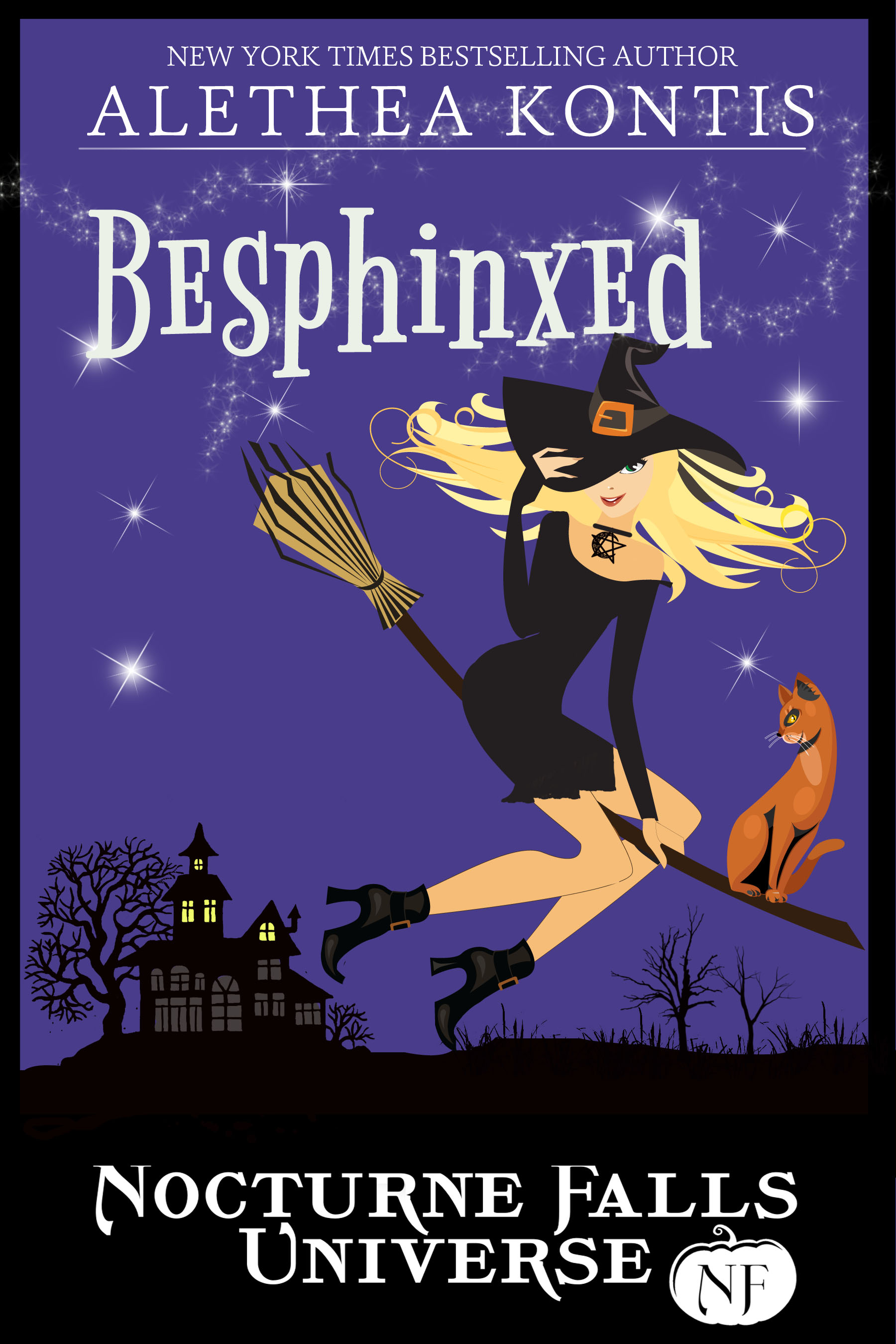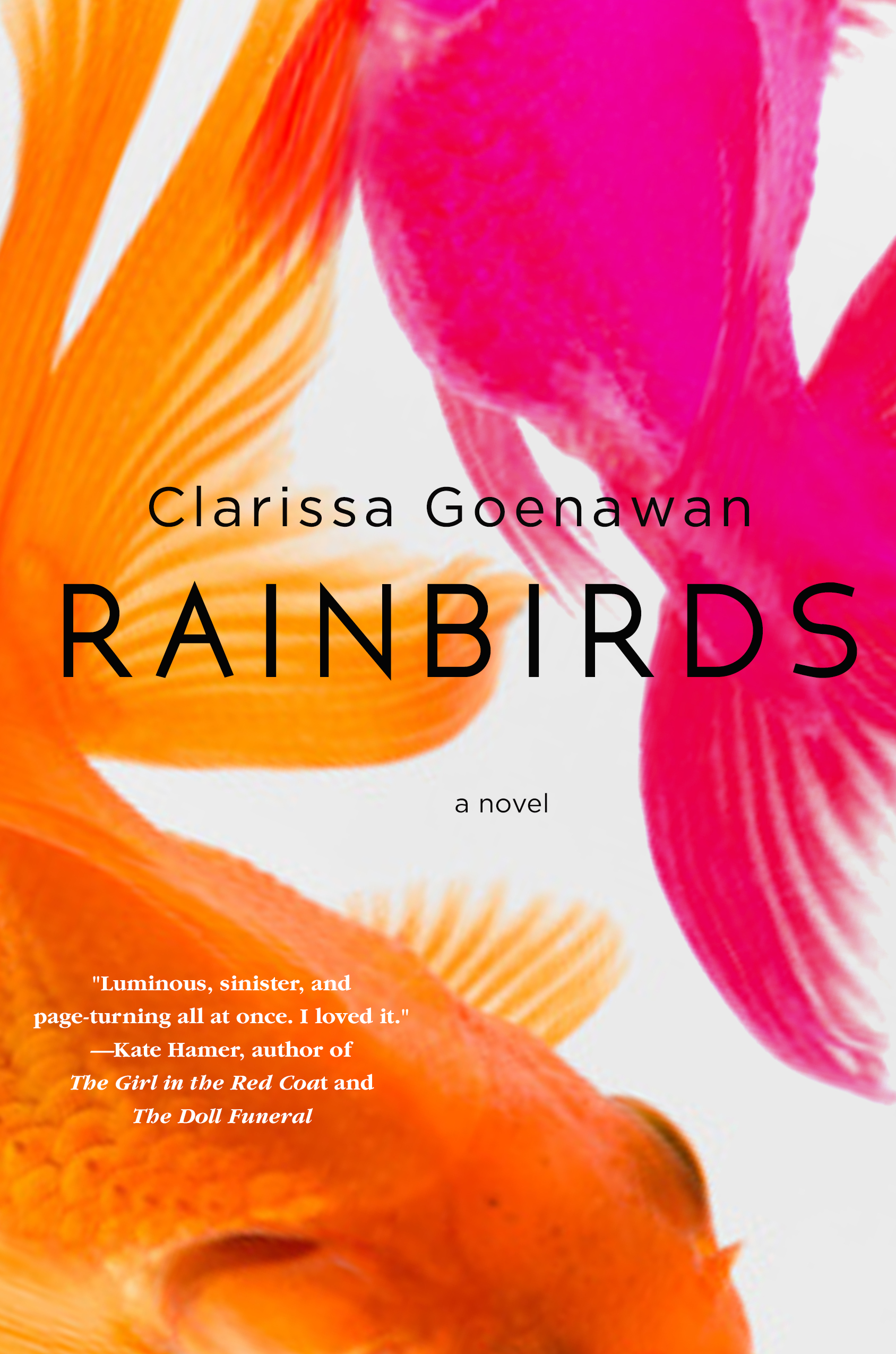
My guest this week on The Scariest Part is author Alethea Kontis, whose new novel is Besphinxed. Here is the publisher’s description:
Heather Hayden has everything a young witch could desire: beauty, money, popularity, and exceptionally strong magical powers. Too bad she’s also got a dysfunctional family that couldn’t care less about her and a Head Witch who’s watching her every move. Heather has no idea what she wants. But she’s pretty sure it’s not some low-rent cat shifter boy from goddess-knows-where, despite the fact that their paths keep crossing again and again…and again.
Owen Liddell is in big trouble. A hundred years ago, a descendant of Arachne tricked him into staring into the eyes of the Great Sphinx, leaving him bespelled into the form a cat. Now Arachne’s sisters have found him again and placed one of their own as a substitute teacher at Harmswood. And if that weren’t bad enough, destiny got involved, tangling his heart up with the most popular witch in school: his best friend Kai’s sworn enemy.
Can Owen escape the evil spider sisters, thwart the spell, rescue the girl, save his friendship and pass his finals all before Zombie Prom? It seems unlikely. But unlikely things are known to happen in Nocturne Falls…
And now, let’s hear what the scariest part was for Alethea Kontis:
Besphinxed is the third book in my Harmswood Academy trilogy, written in the Nocturne Falls Universe. Kristen Painter’s original Nocturne Falls books are paranormal romantic comedies set in a town that celebrates Halloween all year round (to mask the fact that things like witches and werewolves really exist). My books were the first in the Universe geared toward young adults. So I had my work cut out for me from the get-go: Find a way to mix YA, romance, comedy, fantasy, adventure, and horror into tightly-paced short novels based in someone else’s world.
But I am a princess known for juggling the genres in a myriad of formats — these elements just happen to be the gingerbread from which my magical wheelhouse is built! (How’s that for mixing metaphors?) I took to this universe like a fairy to a wishing well. But things still popped up to surprise me during the process of writing this trilogy, and Besphinxed was no exception.
Because there were times when Heather Hayden’s character scared the hell out of me.
Heather spends the first two books as the quintessential Mean Girl of Harmswood Academy. She’s the richest, most powerful, and most popular girl in school. (She’s totally Head Cheerleader, OF COURSE.) She’s a bully to the local girls, who refer to Heather and her two besties as the “Godawful Gothwitches,” because they never wear anything but black. Heather has done some terrible things — mostly because she doesn’t care about anyone but herself — and she’s careless with her magic.
But in Besphinxed, Heather takes the spotlight and becomes the heroine of the piece. This meant I had to figure out the machinations behind WHY she did all the shocking things she did. As someone who was often ostracized and bullied by these sorts of girls in school, it wasn’t exactly a headspace I was looking to get into.
But if George R. R. Martin could create sympathy for Jamie Lannister, then by gods I could do the same for Heather Hayden.
First step: Create a terrifically dysfunctional home life.
Well, who had more troubles than Jan Brady?
So I made Heather a middle sister (because witches should always come in threes). Her older sister Taylor (*cough* Swift) would be the picture of perfection and her younger sister Katy (*cough* Perry) would be the rebellious attention-seeker. Add an absent father and a self-absorbed mother and voila! Heather is now a flawed-but-decent-enough girl raised by people who care more about their own drama than they care about her — a situation that results in Heather believing some pretty horrible things about herself.
Second step: Show how that dysfunction bleeds into Heather’s school life.
This is where the bullying reared its ugly head, as well as the acceptance of toxic masculinity for the sake of reputation…and other similarly bad choices. My goal was ultimately for Heather to recognize the difference between healthy relationships and bad ones, and to begin learning how to tell the difference.
My goal was NOT to look in the mirror and suddenly see Heather looking back.
Authors write what we know. It’s difficult to write a hero or heroine that doesn’t resemble ourselves in some small way. But I did not expect to see so much of myself in Heather. I ended up in some bad relationships before I learned to recognize what was good for me. (I totally made some bad choices based on those, too.) I am the middle of three sisters in my family, right between the perfect eldest and the rebel youngest. I grew up with an absent father and a challenging mother.
I found myself crying when I wrote the chapter where Heather visits her family in Vermont — her happy place. MY happy place. It was like a razor blade that cut right to the bone, so sharp and quick that I didn’t notice until it had already happened.
I came from a background just like Heather’s. I invented the petri dish that had grown Heather, but after doing so, I realized that same sort of petri dish had grown me as well.
Maybe those Mean Girls of my childhood weren’t the monsters I had imagined, so far removed from my own precious world. If fate had dotted her Is and crossed her Ts a little differently, I might have been that Mean Girl.
And maybe, in the story of someone else’s life, I was.
Dear gods.
What a horrifying thought.
Besphinxed: Amazon / Barnes & Noble / Kobo / iTunes
Alethea Kontis: Website / Facebook / Twitter / Patreon / YouTube
New York Times bestselling author Alethea Kontis is a princess, a voice actress, a force of nature, and a mess. She is responsible for creating the epic fairytale fantasy realm of Arilland, and dabbling in a myriad of other worlds beyond. Her award-winning writing has been published for multiple age groups across all genres. Host of “Princess Alethea’s Fairy Tale Rants” and Princess Alethea’s Traveling Sideshow every year at Dragon Con, Alethea also narrates for ACX, IGMS, Escape Pod, Pseudopod, and Cast of Wonders. Born in Vermont, Alethea currently resides on the Space Coast of Florida with her teddy bear, Charlie.
 Victor LaValle’s Destroyer by Victor LaValle
Victor LaValle’s Destroyer by Victor LaValle



